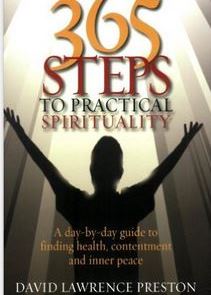There’s a fundamental truth behind our experience of life: It’s not what happens out there in the world that shapes our lives, but what happens in here, between our ears! The great spiritual teachers have been saying this for millennia, and today quantum physicists are saying the same. In essence, when you take responsibility for your thoughts and feelings, you are on the way to taking charge of your life.
Mindfulness is about being aware (1) that how and what we think matters, and (2) of what we think, feel, say and do in every moment, and how it impacts on us.
It is especially important to be aware of our thoughts and feelings in response to events, especially the automatic thoughts that occur when facing difficulties and setbacks. Thoughts of despair, helplessness, hopelessness, self pity and so on are inherently self-defeating. Most of these arise from our childhood programming and are destined to be repeated for the rest of our lives unless steps are taken to change them.
Understanding the Mind
What is this thing called ‘mind’? Unlike the brain, it’s not a physical thing. It’s an activity. It can’t be seen or weighed, but we know it’s there: we are aware of it and can observe it in action. Part of us knows we’re thinking, and can watch the thoughts passing through the mind. Moreover, another part of us is aware that we can observe ourselves observing our thoughts!
There are many levels of awareness within the mind. At any moment, there are things of which we are aware, things we could bring to mind if we wanted (such as what we did yesterday or last week), and other material which lies much deeper – e.g. childhood memories. We can classify these into certain categories:
- The conscious mind: the part of the mind that we are aware of right now. It is, in effect, a stream of thoughts, a never ending inner dialogue. We are only ever aware of a tiny percentage (probably less than 1%) of our mental activity.
- The material just below the surface is often referred to as the subconscious (or preconscious). These are the memories which are easily recalled when we need them, such as a telephone number or the items on a shopping list.
- The remainder (more than 99%) lies beneath the immediate threshold of awareness. This is the unconscious, a storehouse of memories, dreams, instincts, habits and drives, knowledge, dreams, habits, experiences and emotions. Although we call it the unconscious, all unconscious material can potentially be being brought into consciousness.
Accepting responsibility for our thinking
Most people are unaware of how powerful their thinking is and don’t realise they have it within their power to change. We cannot afford to fall into this trap, because we would be reducing our effectiveness if a set of unacknowledged ideas, beliefs or prejudices rules our lives.
Turning our thinking around begins with awareness. If we are unaware of our thinking patterns, then how can we change them?
Get into the habit of noticing what you are thinking and feeling moment by moment. Notice how you respond mentally and emotionally to people, situations and events. If some pattern needs to be changed, then change it (sometimes professional help is needed with this).
Remember – no-one else chooses your thoughts for you. Thinking is something you do by, for and to yourself, and your thoughts impact on the way you feel. Moreover, your behaviour is largely governed by the way you think, so the more mindful you are, the more empowered you will be.
Exercise
Every so often, pause. Break off from whatever you’re doing and be still. Sit comfortably and become aware of your thoughts. What are you thinking? Why are you thinking that thought? Where does it come from? Where is it taking you?
©David Lawrence Preston, 17.11.2016
Follow me on Facebook and Twitter @David_L_Preston
How to Books, 2007
Read my blog at www.davidlawrencepreston.co.uk


Leave a Reply